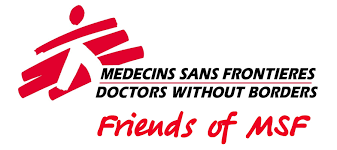The Doctors Without Borders otherwise known as the Médecins Sans Frontières (MSF) on Friday said it had scaled up its activities to control cholera outbreak in Bauchi.
MSF’s Field Communication Manager, Maro Verli in a statement released in Maiduguri said that the organisation was collaborating with the Bauchi State Ministry of Health to contain spread of the disease.
According to MSF, a 70-bed capacity Cholera Treatment Centre had been set up at the Abubakar Tafawa Balewa Teaching Hospital, Bauchi, which would be upgraded to 100-bed capacity to enhance treatment of the disease.
“MSF teams and hospital of Bauchi have received a total of 559 cholera patients since the beginning of the outbreak in February. Almost two weeks after MSF started its operation in Bauchi, 243 cholera patients have been admitted to MSF cholera treatment center; 183 discharged and three deaths have been reported.
“Time is critical to reduce cholera transmission,” Dr Mamady Traore, the MSF medical coordinator, was quoted as saying in the statement.
Verli noted that the organisation was closely coordinating with the Bauchi State Ministry of Health to control, manage rising number of cases and contain spread of the disease.
He said that the organisation was also providing training to health workers to ensure effective control of the disease.
The statement listed symptoms of the disease to include diarrhea and vomiting, adding that, “dehydration arises very quickly and can cause death if not treated immediately and in the right way by administering fluids and oral rehydration salts.
‘‘Most patients can be treated orally and only in cases of severe dehydration fluid administration is done intravenously. Hence it is of crucial importance for people with symptoms of cholera to seek treatment immediately. And patients can be stabilised and treated in a cholera treatment centre where strict hygiene measures prevent the disease from spreading,” it added.
Verli said that MSF was running an extensive project on child health and reproductive health in Sokoto and Jigawa States, and providing care to children affected by lead poisoning in Zamfara and Niger, as well as victims of sexual violence in Port Harcourt.
According to him, the organisation has been providing healthcare services to people displaced by conflict in camps and host communities in North-East since 2014.
“And elsewhere in the country MSF teams respond to medical emergencies such as meningitis and Lassa fever outbreaks,” the communication manager said.


